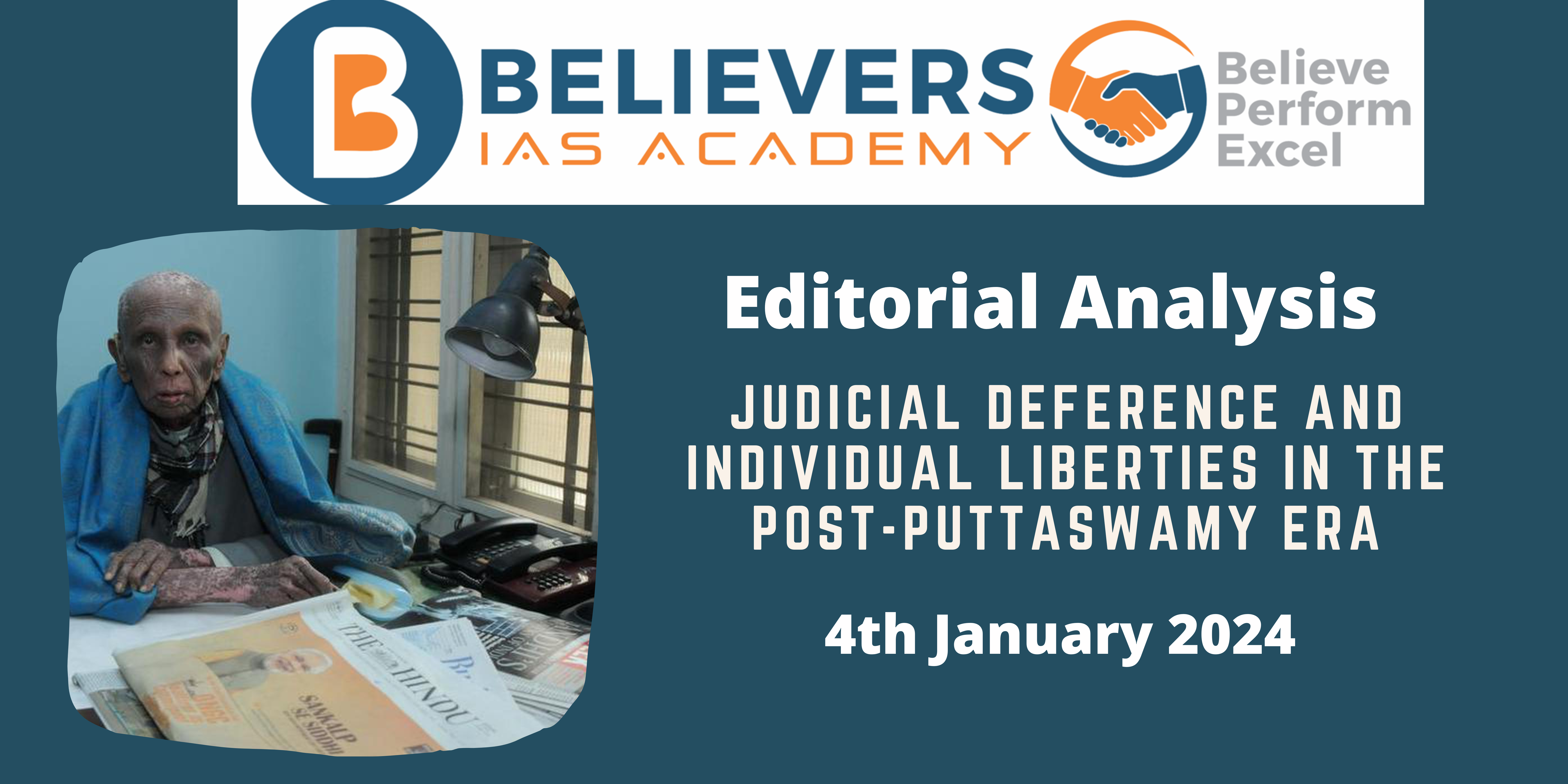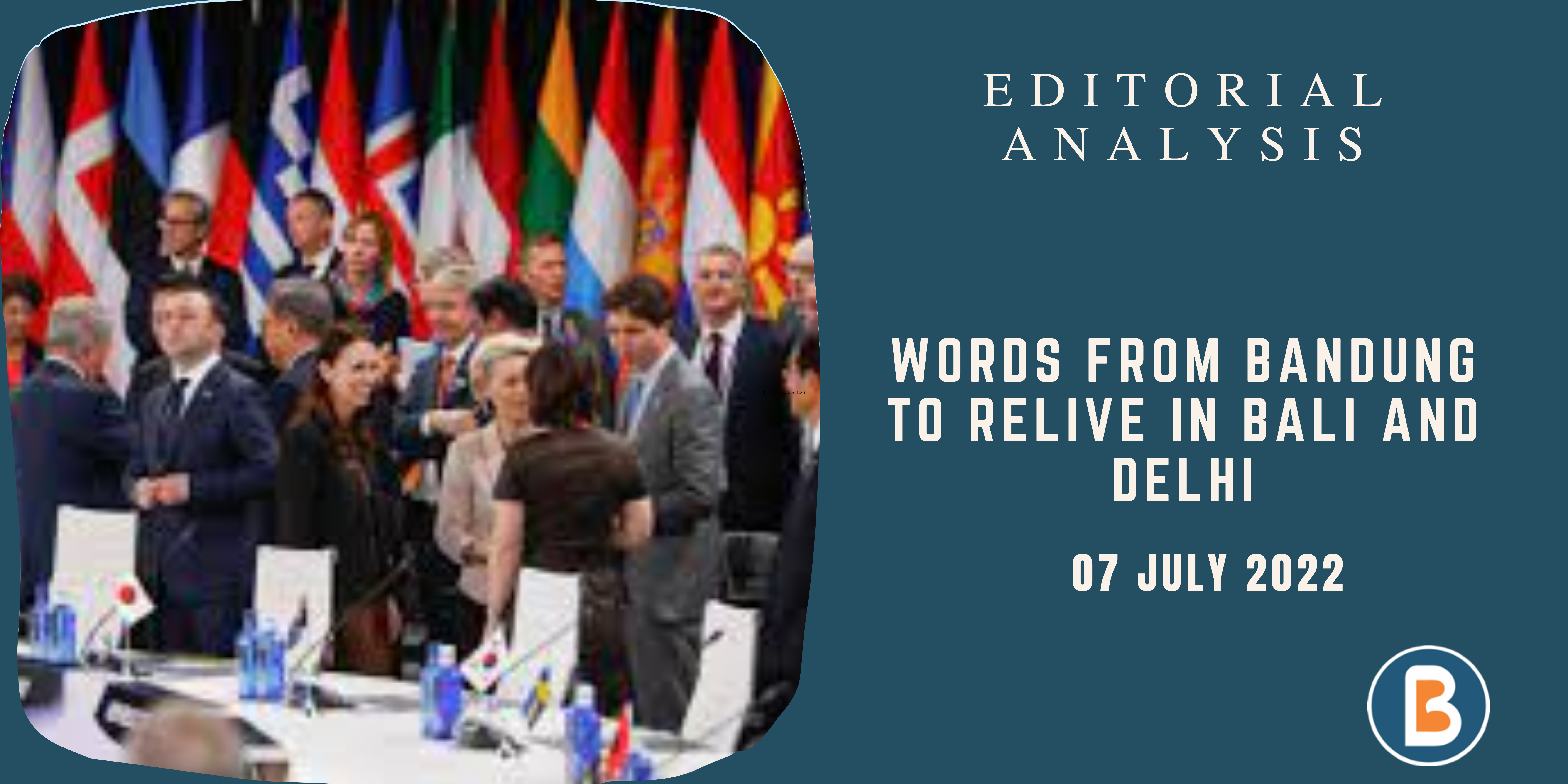Judicial Deference and Individual Liberties in the Post-Puttaswamy Era
Context:
The Supreme Court of India, in Justice K.S. Puttaswamy vs Union of India, proclaimed the fundamental right to privacy under the Indian Constitution. Despite the anticipation of a new era safeguarding civil liberties against governmental excesses, the practical interpretation of these rights within our statutes has seen limited transformation.
- The editorial – “I-T searches, a form of extra-constitutional power”, explores a paradox where the promise of justification and proportionality coexists with a prevailing culture of judicial deference, focusing on the implications of Section 132 of the Income Tax Act, 1961.
Relevance:
GS – 02 (Government Policies & Interventions)
Mains Question:
Critically analyze the implications of Section 132 of the Income Tax Act, 1961, in light of the post-Puttaswamy constitutional paradigm. Evaluate the historical evolution of income-tax laws and the judiciary’s interpretation, highlighting the tension between individual liberties and executive authority. (250 words)
Dimensions of the Article:
- K.S. Puttaswamy vs Union of India- Privacy as a Fundamental Right
- Income Tax Act, 1961
- Historical Evolution and Judicial Rationale
- Changing Constitutional Perspectives
- Judicial Deference and Outdated Standards
K.S. Puttaswamy vs Union of India- Privacy as a Fundamental Right
- The court asserted that privacy is an inherent right for all individuals, emphasizing that any limitation to this right must meet specific criteria:
- Legislative Mandate: State actions restricting privacy must have a legal basis.
- Legitimate State Purpose: The actions should serve a valid state objective.
- Proportionality: The restriction must be necessary for a democratic society, and the measures taken should be the least invasive.
- This groundbreaking ruling transformed the government’s approach to citizen privacy, setting new standards in both practice and policy.
- Structural Reforms: Governments are now required to institute changes, ensuring transparency and openness in surveillance projects, with a mechanism for judicial oversight.
- Careful Data Handling: Authorities must exercise caution and sensitivity in managing citizens’ personal information.
- Legislation Mandate: The ruling calls for the enactment of a comprehensive data protection law, holding all entities handling personal data accountable, including the state.
Income Tax Act, 1961:
- Section 133A of the Income Tax Act, 1961, allows authorised officers to enter any business, profession, or charitable activity within their jurisdiction to collect hidden information.
- During the survey, the officers can verify the books of account or other documents, cash, stock, or other valuable articles or things. The officers may impound and retain any books of account or other documents after recording reasons for doing so.
- The provisions for impounding or seizing goods were introduced in the Finance Act, 2002.
- Section 132 grants the taxman, police power to forcibly search persons and their properties, and seize goods found during such a search, including money, bullion, and jewellery.
Historical Evolution and Judicial Rationale:
- The historical evolution of income-tax laws reflects the oscillation between limited powers and unchecked authority. The original 1922 legislation lacked search and seizure powers, with subsequent attempts in 1947 being struck down for violating equal treatment principles.
- The 1961 legislation introduced Section 132, which was upheld in Pooran Mal vs Director of Inspection (1973) based on outdated jurisprudence from M.P. Sharma vs Satish Chandra.
Changing Constitutional Perspectives:
- Post-Puttaswamy, constitutional perspectives shifted, recognizing the intrinsic link between privacy and personal liberty.
- The state’s power to search and seize must now adhere to the doctrine of proportionality, ensuring a legitimate aim, rational connection to objectives, lack of alternative means, and a balanced approach. Section 132 appears to breach this principle.
Judicial Deference and Outdated Standards:
- The 2022 case of Principal Director of Income Tax vs Laljibhai Kanjibhai Mandalia revealed a reluctance to embrace the post-Puttaswamy paradigm.
- The court applied the outdated Wednesbury principle, focusing on the honesty and bona fides of the executive’s belief, disregarding the need for rigorous judicial review. This approach contradicts the constitutional demands for strict adherence to statutory law when fundamental rights are at stake.
Way Forward:
- The coexistence of a promise for justification and proportionality with a culture of judicial deference poses challenges to the effective protection of civil liberties.
- Moving forward, a comprehensive reevaluation of Section 132 is essential, ensuring that the powers of search and seizure align with constitutional principles.
- The judiciary must adopt a rigorous review approach, adhering to the doctrine of proportionality, to prevent the risk of granting the executive undue and extra-constitutional powers.



